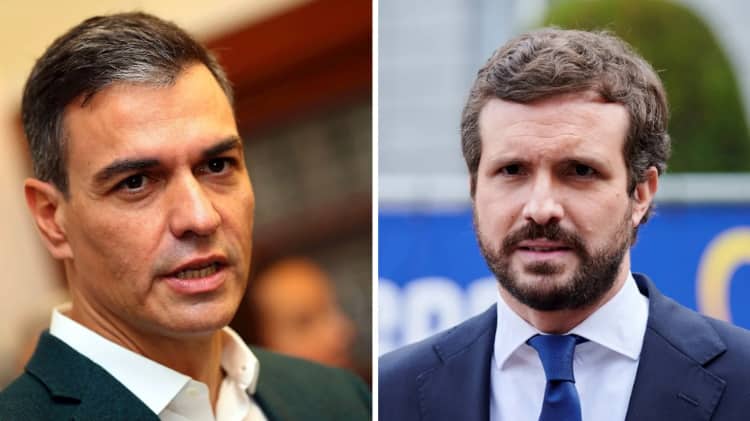Ángel Collado
The Executive has pushed through in Congress the falsest General State Budget of the last decade if the forecasts of international organisations, the Bank of Spain and the opposition are met, but it has guaranteed effective control of the legislature.
With these accounts, which can be extended for next year, Pedro Sánchez can call elections when it suits him best from now on or wait for the automatic dissolution of the Cortes in December 2023.
And while the President of the Government confirms the stability of his coalition cabinet with the extreme left (Podemos) and the backing of his pro-independence partners, who already brought him to power in 2018, the internal crisis of the Popular Party is holding back the rising expectations of Pablo Casado that all the polls, except the official CIS ones, were registering.
Sánchez is reaping, in the form of a comfortable budgetary process, the fruits of previous favours to his partners: the pardon for the ERC leaders imprisoned for sedition and embezzlement, the bringing of imprisoned ETA terrorists closer to the Basque Country, and the handover to the PNV of responsibility for penitentiary policy.
Between the more substantial political concessions and the investments also tailored to the pro-independence supporters, the head of the Executive has an absolute majority to spare: 188 votes in favour, 12 more than necessary in a House of 350 seats.
The opposition took for granted all the facilities in the parliamentary process in view of Sánchez’s generosity with his partners, especially when they saw the government’s determination to whitewash Bildu, a formation that is the heir to ETA’s political wing, with five seats in the lower house. But the most surprising thing has been to see how the PP, with its particular crisis of internal division, has encouraged the euphoria of the coalition government with its renewed support.
The Executive is gaining oxygen with the stability that comes from having approved accounts, at least until they are in evidence, while the Popular Party continues to be entangled in a battle of egos between its national leadership, headed by Pablo Casado, and the emerging figure of the party, Isabel Díaz Ayuso. The first to pay the price in the electoral polls is Casado himself.
In little more than a month, the PP has gone from being a sure winner and with the prospect of winning an absolute majority with Vox in all the private polls, to reducing its advantage over the PSOE and remaining in a minority against the bloc of the left and the separatists led by Sánchez. This is the fact that the polls will insist on in the coming weeks, according to the party itself.
Ayuso’s victory in Madrid last May was one of the factors that boosted the PP in the polls before the summer. The slowdown in this trend now comes with an internal conflict over the date of the next regional congress in Madrid, which is already leading to a weakening of Casado’s image as head of the opposition.
And if Sánchez is taking advantage of the PP’s moment of weakness, Vox is doing the same as an aspirant to keep the PP’s electorate. The party led by Santiago Abascal is promoting instability in PP regional governments such as Andalusia by voting against Juan Manuel Moreno’s budget and threatening to do the same in the Madrid City Council led by José Luis Martínez-Almeida.
Although Sánchez insists that he is willing to extend the legislature until the beginning of 2024, in the PP they see all kinds of pre-electoral manoeuvres in his moves. They attribute to calculations to maintain their majority, from the whitewashing of Bildu as a partner to the promotion of provincial-level parties that subtract seats from the PP, the obsession with giving prominence to Vox, or the postponement of any major reform that could confront Podemos.
The leader of the PSOE already demonstrated in the motion of censure against Mariano Rajoy that he does not need to win or come first in an election to reach or remain in power, only to join forces with the entire left, independents, nationalists, regionalists and even Bildu. In June 2018 it did so on the basis of only 84 PSOE deputies.
The main political benefit for the President of the Government of getting the Budgets through is the margin they give him to manage the legislative calendar from now on. He has an economic framework to manage for two years, unless the promised economic recovery gets complicated, and a crisis in the opposition that no one was counting on in case he needs to call elections rather than take unpopular decisions on austerity and cuts.







